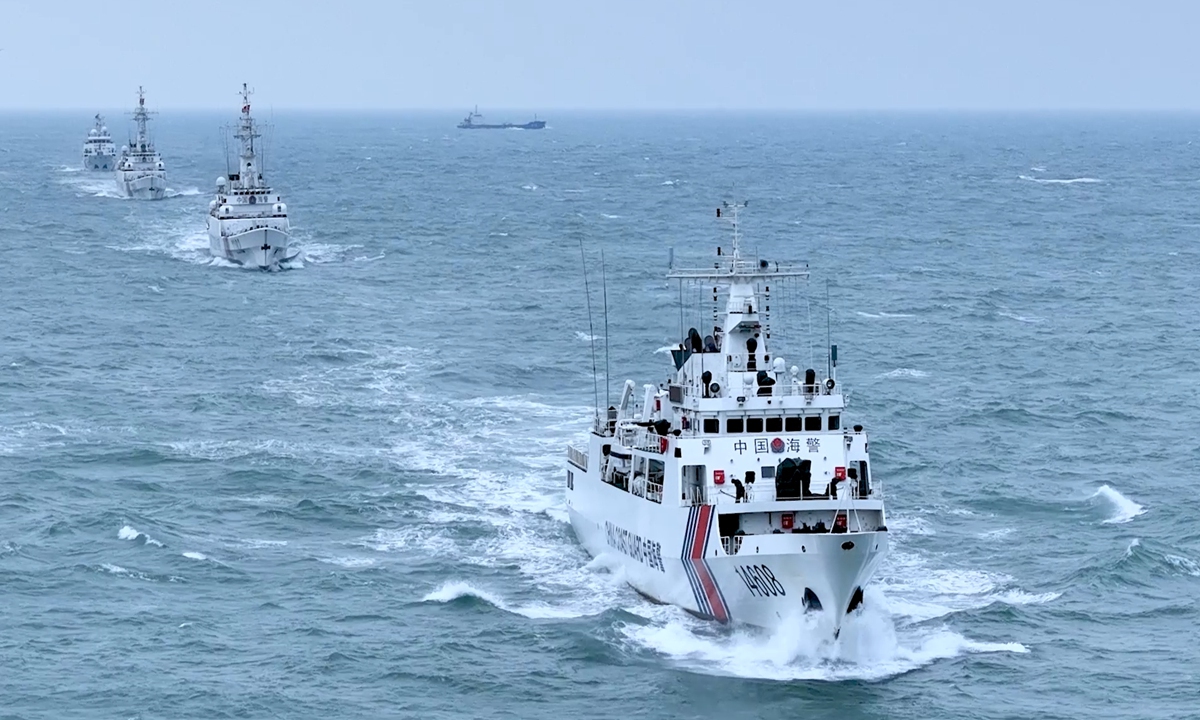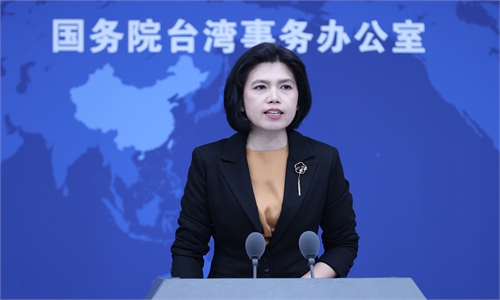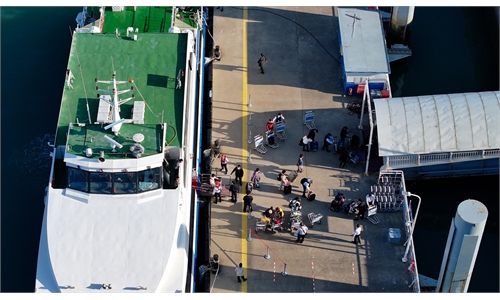
The coast guard of East China's Fujian Province organizes a flotilla and conducts a law enforcement patrol in waters near Kinmen on February 25, 2024, the China Coast Guard said in a press release on the day. Photo: China Coast Guard
On Tuesday, family members of the victims involved in the February 14 fatal boat incident returned to the Chinese mainland from the Taiwan island feeling disappointed. Despite 15 rounds of consultations, no one from the DPP authorities was willing to take responsibility, or offer an apology to the families of the deceased crew members.
The DPP authorities displayed a lack of compassion and humanitarianism toward their mainland compatriots, maintaining an extremely tough and unreasonable attitude. This has not only angered mainlanders but also sparked outrage in local public opinion.
The fault of the fatal boat incident on February 14, in which two fishermen from the Chinese mainland were killed, lies with the DPP authorities. Xin Qiang, director of the Taiwan Studies Center at Fudan University, told the Global Times that the violent law enforcement by the DPP authorities in recent years made similar incidents inevitable. After the incident, the DPP authorities did not apologize but lied and concealed the truth. This kind of blame-shifting will further escalate the tense situation across the Straits. Under the DPP's path toward "Taiwan independence" and confrontation, a thaw in cross-Straits relations seems to be very distant.
"This incident is highly provocative and destructive. If it is difficult to establish an effective mechanism of mutual trust and negotiation to resolve conflicts between the two sides, it will bring long-term harm," said Tian Feilong, a legal expert at Beihang University in Beijing. The violent law enforcement by the DPP authorities, subsequent evasion of responsibility, cover-up of facts, and refusal to apologize and compensate are blunt provocations and sabotage of cross-Straits integration and development.
The mainland has shown great magnanimity and goodwill, but where is the DPP authorities' sincerity in properly and responsibly handling of aftermath regarding the fatal fishing boat incident? We hope that the DPP authorities can correct their attitude. If the fatal boat incident is not properly handled, the mainland has sufficient means and capabilities to hold them accountable.
Currently, the China Coast Guard has launched regular law-enforcement patrols in the waters of the Xiamen-Kinmen area. Tian said that the mainland's patrols and exercise of administrative and judicial jurisdiction in the relevant waters will become more regular, concentrated and standardized. If the DPP authorities continue to make a fuss, in the absence of successful interaction and negotiation, the mainland will have to take proactive law enforcement and jurisdiction to uphold the legitimate rights of people on both sides of the Straits and maintain the stability and order of the relevant areas. Overall, the mainland has maintained the initiative and rhythm in dealing with the aftermath of the fatal boat incident.
Since the DPP authorities came to power, they have refused to acknowledge the One China principle and the 1992 Consensus, persistently pursuing "Taiwan independence" and seeking external support for separatism. The US made a statement on the fatal boat incident: "We continue to urge restraint and no unilateral change to the status quo." The right and wrong of this incident are very clear, but the US did not criticize the actions of the DPP, instead it only "urged restraint" without mentioning the facts. This has proven its biased stance. The DPP's continued arrogance is precisely the result of long-term indulgence by the US.
If the incident is not properly handled, the least secure will be the DPP authorities, as the mainland has extensive and powerful law-enforcement capabilities in the Xiamen-Kinmen area and even the entire Straits. The DPP authorities will be left in a constant state of anxiety, not knowing when and where they will face consequences. The departure of mainland personnel from Kinmen without further negotiations is a strong and effective counterattack strategy against the Taiwan side. It is worth waiting to see how the true face of the DPP authorities, who are tough outside but weak inside, gradually reveals itself.


